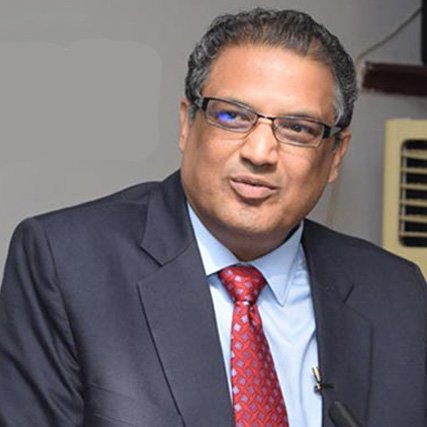ASustrian-born Franz Kafka (1883-1924) was a strange man. He was a proponent of Surrealism, away from Realism. He believed in the idea of the subconscious hidden behind the world of consciousness. Franz Kafka greatly influenced 20th-century literature and thought. It is said that Kafka wrote a lot but avoided publishing it himself. After Kafka’s death, his two masterpieces, THE TRIAL and METAMORPHOSIS, were published. These two are now the signs of Kafka from whom Surrealism has taken the form of a literary movement.
If Kafka had been alive, if he had come to the land of contradictions, he would not have accepted the decisions given by the military courts, he would have rejected them as non-transparent and one-sided. If Kafka had been a realist, he would have shown pragmatism and accepted this whole process by saying that the WHEEL HAS COME TO FULL CIRCLE, that is, “the wheel of fate has completed its cycle.” But Kafka was beyond realism. He believed in the truth hidden behind reality. He could also peer into the world of the subconscious, hidden from the conscious world. Therefore, Kafka would have refused to accept military punishments.
In Kafka’s The Trial, the accused “K” does not know where the court is sitting. What are the charges against him and what is the defense for these charges? And how should he do it? The point is that there is a long way to go between absurdity and abstraction. What is seen is not reality, but another reality beyond reality, which is perhaps the truth. Kafka’s “K” trial is an experience of absurdity and abstraction. Whenever a court is held in the world, a case is discussed and one party is very powerful and the other is very weak, then Kafka’s character “K” comes to mind, who receives an abstract sentence from a meaningless court. When in the world does anyone accept this sentence? Why would Europe, America, Britain accept it? This is Kafka’s era, this is his world. Now, more than pragmatism, meaninglessness is ruling the world. Now the era of realism is over. Now abstraction is ruling. Kafka’s question is that even if the accused who is popular is wrong, even if he is guilty, was the process of trying him transparent? There is an open court and in it, there are big wrong decisions in history. The courts of justice have made huge mistakes, but still, we have to accept the wrong decisions of open courts. That it has been a principle of human civilization for centuries that civilization and law can be maintained only by accepting the wrong decisions of false courts. Both Socrates and Bhutto knew that the decisions against them were wrong, but Socrates drank the cup of poison and kept the illusion of law and civilization and became immortal. Bhutto called those who made biased decisions against him “My Lord” until the last day and went to the gallows to keep the illusion of law and constitution. He gave his life but did not tear the chest of law and constitution. These were both open courts. We don’t know what happens in closed courts. Why would Kafka accept their decisions?
Aajiz of Kondistan called Hafizullah Niazi regarding Hassan Niazi. It was obligatory to express sympathy to him, but at the same time he told him that there is good and bad news in this sentence. The bad news is that the sentence is harsh and it has caused pain, but the good news is that now his case will be heard in open civil courts and all this will be done in front of everyone’s eyes. Then it will be known whether the accused is guilty or innocent. It should be remembered that Hafizullah Niazi used to be the greatest lawyer of his brother Nisbti, then we saw the body being cut in front of us. When he was Imran’s lawyer, he used to arrange meetings and banquets for all journalists with Imran. His banquets are still going on, but now the star of these gatherings is not Imran Khan, but himself. After the arrest of his only son, Hassan Niazi, he is going through a huge personal, political and psychological crisis. He dislikes Imran Khan’s politics. He writes articles against him every day and gives speeches. But the crisis is that Hassan is devoted to his uncle’s philosophy with all his heart. Despite his father’s advice, he boldly wants to do what he wants. Now the father is divided into two parts. On one side is the love of his son, and on the other side is his own ideology. So far, both of them are fulfilling their promises well. May God ease their problems.
While mentioning Fazlan Kafka, Hafizullah and his son Hassan came up. Now let’s go back to Kafka. Kafka was strange, his characters were strange, his stories were strange, his ideas were strange, and the outcomes of his stories were also strange.
Kafka’s world was strange and meaningless. The world of contradictions is based on pragmatism. Here, even if there is popularity, acceptance is necessary. Here, fighting the powerful is costly. Here, crowds can plunder but cannot bring about revolution. Here, conflicting ideas can be expressed but these ideas are not heard in the halls of power. Here, standards are not transcendental to reality, but reality. Here, ideology and narrative are ineffective. Power is the force. Here, individuals are not counted. Here, weapons are counted. The one with the most weapons is the winner. Here, alternative narratives are defeated and dominant narratives prevail. This is a different world. Kafka’s world was different.
The common people of Kondistan are in a dilemma. They believe that the May 9 strategy of the PTI was wrong. The Islamabad March in November was a bloody program. But the trial and punishment of civilian political activists in military courts is a new sand that will fall on the necks of all political parties tomorrow. In a way, this is also synonymous with complete distrust in the small courts of Kondistan. The same impression is being given in the world. In the opinion of the common people, this path should be closed and the small courts should be reformed so that justice can be delivered quickly there. Investment should be made in investigative agencies so that they can do their work with modern techniques. There should be a military trial of those in uniform, traitors to the country and terrorists, but the trial of civilians and especially political activists should be held in ordinary courts. Giving the impression to the whole world that the requirements of justice are not being met here is very dangerous for Pakistan.
Kafka can think whatever he wants. In the land of contradictions of the common man, only power will make the decisions. I wish someone would read Kafka too…….
 Colors
Colors  View Books
View Books 



